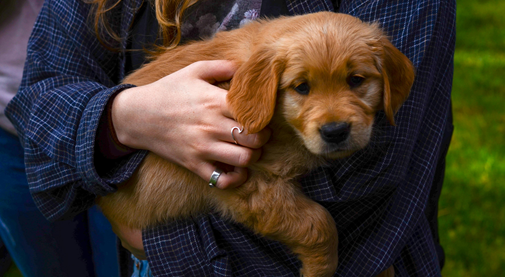
Each year, Dog Anxiety Awareness Week, observed during the first week of May, brings attention to an often overlooked but incredibly important topic: canine anxiety. Just like humans, dogs can experience stress and anxiety, and it can deeply affect their health, behavior, and quality of life. This awareness week is designed to educate pet parents on recognizing the signs of anxiety in dogs and finding effective, compassionate solutions to help them feel safe, confident, and calm.
What Is Dog Anxiety?
Dog anxiety can stem from a variety of causes—separation from their owners, loud noises like fireworks or thunderstorms, changes in routine or environment, past trauma, or even certain medical conditions. While it might seem like something a dog will “get over,” untreated anxiety can escalate into destructive behavior, aggression, depression, or physical illness.
- Excessive barking or whining
- Pacing or restlessness
- Panting or drooling excessively when not hot
- Destructive behavior (chewing furniture, scratching doors)
- Hiding or avoiding interaction
- Accidents in the house despite being house-trained
During Dog Anxiety Awareness Week, veterinarians, trainers, pet brands, and shelters all collaborate to spread awareness about these signs and how to address them proactively.
How to Treat and Manage Dog Anxiety
Thankfully, there are many approaches to managing dog anxiety, and every dog is different—so it often takes a little patience and observation to find what works best.
1. Create a Safe Space:
Dogs need a spot they associate with safety. This could be a quiet room, a cozy crate, or even a particular bed with familiar scents. Some dogs also respond well to calming music or white noise.
2. Exercise and Enrichment:
Regular physical and mental stimulation is crucial. Walks, playtime, puzzle toys, and social interaction can reduce anxiety and redirect nervous energy.
3. Desensitization and Training:
For dogs with specific fears (like thunderstorms or being left alone), gradual desensitization through controlled exposure, combined with positive reinforcement, can be highly effective. Working with a professional trainer or canine behaviorist can make this process more successful.
4. Natural Calming Aids:
There are several natural options available to help soothe anxious pups. Calming sprays, anxiety wraps (like ThunderShirts), pheromone diffusers, and treats containing ingredients like L-theanine, chamomile, or CBD can offer gentle relief.
5. Veterinary Support:
In some cases, anxiety is severe enough to require medical intervention. A veterinarian can help rule out underlying health issues and may recommend prescription medications or supplements as part of a broader treatment plan.
Why Awareness Matters
Dog Anxiety Awareness Week is more than a calendar event—it's a chance to foster empathy and understanding for our pets. With more people working outside the home again or going on vacations, separation anxiety in dogs has become especially common. This week encourages pet parents to look closely at their dog’s behavior, consult with professionals, and explore solutions.
By spreading awareness and compassion, we can ensure more dogs live happier, less stressful lives—and strengthen the bond between dogs and the humans who love them.

Comments (0)
Back to Blog